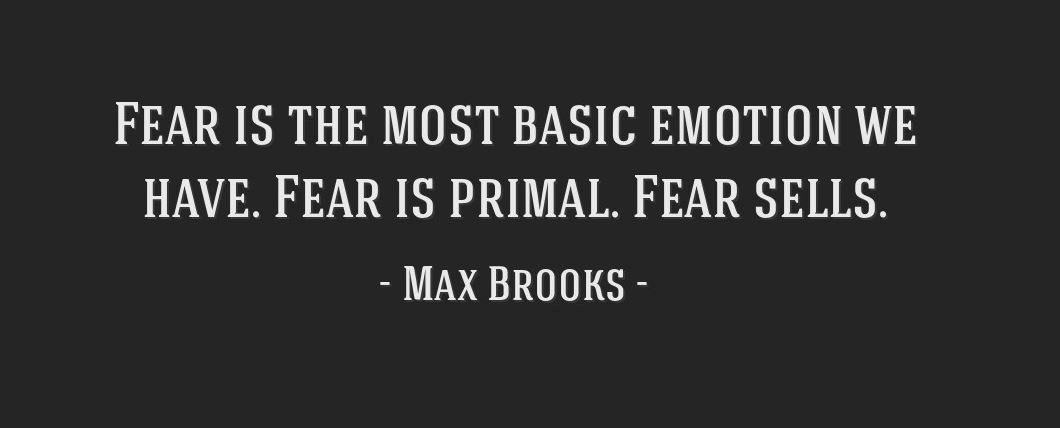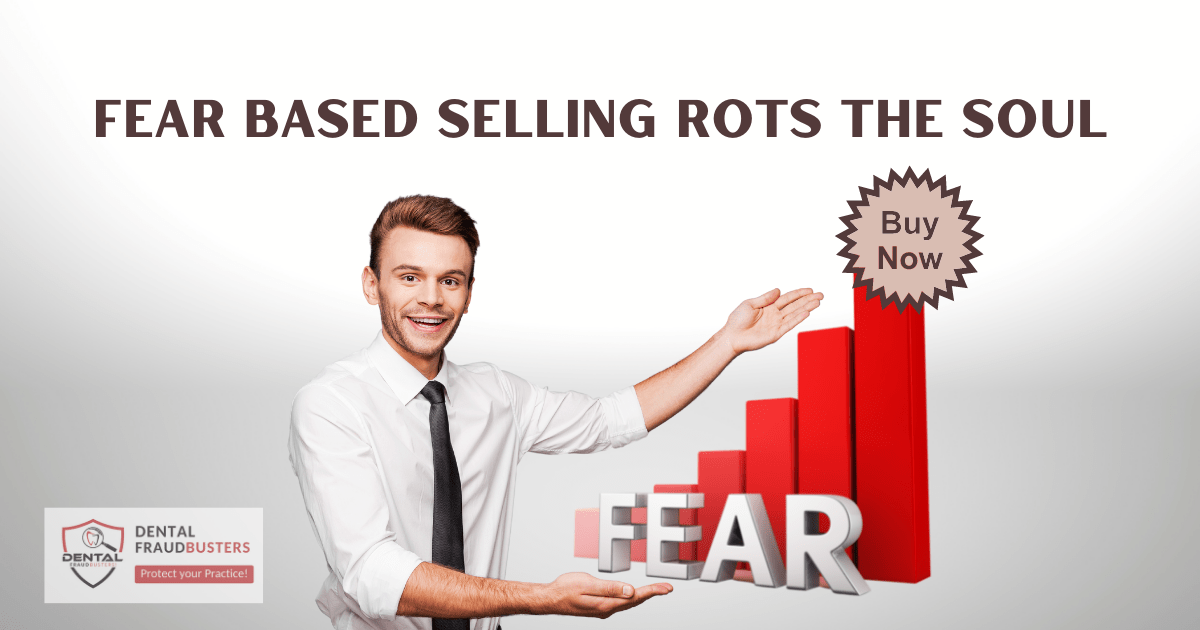FEAR BASED SELLING ROTS THE SOUL
“Fear based selling is driven solely by a desire to sell. It focuses on the making the sale using using high-pressure selling and bullying to cause their prospective client (i.e., victim) to buy products or services under duress.“
Bill Hiltz
Professionals should never use fear tactics to sell their services
Fear is universal. We all experience it, and when we become consumed by fear, we desperately search for ways get back inside our comfort zone.
Salespeople understand this and that’s why “fear” is often seen as a highly effective tool to sell products and services.
At the consumer level, marketers use fear to sell endless numbers of products ranging from anti-aging potions (fear of getting old) and weight loss systems (fear of being overweight), to home security systems (fear of being unsafe).
Political attack advertisements will often use fear-based marketing to portray an opposing candidate as a person who lies and cannot be trusted. (i.e.: create doubt in voters minds)

Loss aversion is when a person is more motivated by the fear of losing something than gaining something. “If I don’t buy what they are selling, then really bad things can happen to me.”
Fear-based selling by professionals is predatory, manipulative, and unethical.
When a person is seeking professional services (i.e.: lawyers, advisors, accountants, doctors, dentists) they often ascribe a high level of trust to the person who is advising them.
Some of these professionals are unable to keep their self-interest in check and use fear based selling to drum up business.
Fear based selling works like this: to make a sale, the professional will exploit a person’s preexisting fears by
- exaggerating issues
- creating unrealistic scenarios
- manifesting the worse case scenario as the only outcome
- making repeated warnings about unlikely and extreme risk possibilities
Fear based selling is used to create uncertainty and doubt in the client (victim) by making negative comments about any competitors and omitting alternate or less costly solutions.
In the end, the goal of fear-based selling is to make it appear that you have an overwhelming problem that will not be solved by unless you buy what they are selling.
Here are some real examples of fear-based-selling
“I contacted a lawyer to ask about a potential data breach. I was told I needed to pay them a $12,000 retainer (just to start) in order to protect myself from dire legal consequences”
(editor’s note: the breach in this case involved accidental disclosure of eight patient ‘appointment reminder’ emails)
“To get my business, [NAME] scared me into believing embezzlement was almost certainly happening, and if I did not buy their services, it could spell financial ruin for my practice.”
(editor’s note: the dentist spent over $8000 for an investigation only to learn that embezzlement was not happening)
“My IT company told me to ensure my patient data information is secure, I need to upgrade all of my computers at a cost of over $25,000”
(editor’s note: the practice got a second opinion, and had upgrades completed for about half the cost)
Using fear to sell professional services is manipulative and unethical.
It would be easy for me to use fear to sell my services when a prospective client calls.
That’s because when confronted by the possibility that a financial crime is happening, the are uncertain, they have doubt and they feel anxious.
It’s a perfect environment for unscrupulous selling.
TRUST-BASED-SELLING IS GOOD FOR THE SOUL
Trust-based selling is the gold standard that professionals should use when selling their services. This requires:
- adherence to the principles of veracity and beneficence.
- addressing the person’s fear, and removing uncertainty and doubt with out self-interest.
- application of the four way test
Trust-based-selling is driven by a desire to help people resolve their most complex problems. It means asking the right questions, and putting the client’s interests above self-interest.
Everyone who calls me are already feeling some level of fear, uncertainty and doubt. Some will have low to moderate concerns, while others tell me they are “living their worst nightmare and willing to do anything to get out of it.”
Instead of scaring and paralyzing them into into buying services that they do not need, it’s in my best interest to educate and advise so they can make a proper and informed decisions.
When selling professional services, my approach is to provide an honest and transparent account of each person’s situation.
Professionals who use fear-based-selling are untrustworthy and self-absorbed. (…and there is an actual a formula that shows why – see below).



